Freelance TV critic roundtable
Three highly successful, talented, and wonderful freelance writers come together to discuss covering television and the state of the field.
Hello fellow freelance writers! I’m thrilled you could find the time for me during this busy fall. You’re three of my favourite TV-obsessed writers in the field and I’m so happy we get to “sit down together” for this asynchronous roundtable. I have to admit I have a selfish intent: I’ve been reflecting a lot about the state of our field and the future of television coverage as it applies to my own career. But before we get into that, let’s get to know each other a bit. What’s your story and how did you get to freelance writing?
Emma Fraser: Ever since becoming obsessed with reading Television Without Pity recaps in the early ‘00s, I knew I wanted to write about TV, but I didn’t necessarily know how to make it into a career, so I ended up doing a Masters in Film and Television because I thought academia might be an option. This was around the time I started using Twitter and began my first blog. The TV Twitter community was really welcoming, and this is how I made friends and work connections who are still intrinsic to where I am today—and definitely helped kickstart my career. I ditched my first blog and conceived TV Ate My Wardrobe, which mostly focused on costume design with some other non-costume analysis—I made sure to post something every weekday. Shows like The Americans, The Good Wife, New Girl, and Mad Men helped shape the writer I now am. I also guest-wrote (for free) on other small blogs. From here, I got my first paid commissions on Flavorwire, Observer, Complex, and Collider. During this time, I was working at a cinema, which was shift work, so super flexible. Often, I would write during the day and then do an evening shift until late. It was tiring, and I didn’t have much free time, but it meant I could save enough so I had a cushion for when I went full-time freelance five years ago.
Kaiya Shunyata: Cliché as it is, I’ve wanted to be a writer since I was young. I got my first job as a housekeeper on a resort at 16, and would spend my lunch breaks writing tidbits of what are now long abandoned novels and poetry collections. I began university in 2016, and after a stint as an english, then gender studies major, I finally switched over to film studies. I got really into the Oscars and film twitter around this time, and I ended up writing a little piece on Moonlight for Screen Queens’ anniversary zine in 2018. From there I joined a little publication as a film writer, and branched out as a freelancer in late 2021.
I found being a film critic quite stifling, especially because I was living in Ottawa at the time. There weren’t any press screenings near me, and of course because I was quite new to the whole thing I found placing reviews and essays challenging. I moved to Toronto in 2022 to attend the University of Toronto’s Cinema Studies M.A and wrote my first TV review on House of the Dragon for RogerEbert.com the same year. I decided to pivot to TV after that, and did an internship at Paste Magazine last fall under the wonderful Anna Govert who quite literally changed my life and the way I pitch and write. Since then I’ve been freelancing regularly, which I never thought would be possible. I love TV so much and I love writing about it even more.
Max Gao: I never expected to work as a freelance journalist, let alone work in the entertainment industry. I was a huge tennis fan growing up, and I began my career in sports as a pre-teen. Every August there is an annual professional tennis tournament held in my hometown of Toronto, and for almost 15 years, I’ve carved out a week every summer to attend the event. I started attending simply as a fan, seeking autographs and running around from court-to-court with my camera and my phone to document the action. Tennis Canada quickly took notice of my passion for the sport, and they offered me various ways to cover the annual event during my teen years—first as a fan, then as a volunteer, and now as a paid writer and photographer. That became my “summer job.” During the rest of the year, as a hobby, I covered tennis, swimming, baseball and figure skating for a budding sports site. I barely got paid anything, but those years gave me a strong foundation to develop my writing skills and an outlet to channel my love for competition.
I graduated from high school in 2020, a few months into the Covid-19 pandemic. Like everyone, I felt like I was in a state of perpetual grief—my graduating class did not have a chance to reach a lot of the milestones that are normally associated with early adulthood, but obviously, there were much more pressing concerns that affected the entire world. At that stage, sporting bodies had suspended all tournaments indefinitely and frankly did not know how they would be able to resume competition under strict social-distancing guidelines. I felt the urge to write about something different, so I decided to focus my attention on TV and film—an industry that I admittedly knew very little about, but that had fascinated me since I was a child. I did not have a single connection in entertainment, but I simply started cold emailing culture editors (whose contact information I found on social media or mastheads) and asked if I could work with them. I pored over pitching guides and was able to leverage my years of doing interviews in sports to convince some very kind editors to let me try my hand at TV/film coverage, and I have successfully done that for just over four years now.
What are your thoughts on the state of the culture writing field as it currently stands? I’m on the more nihilistic side but each of you have found success in your niches and with the editors you work with. I live in Vancouver, one of the most expensive cities in the world, and I increasingly feel that there are fewer opportunities, more talented writers laid off and added to the freelance pool, less editors who respond to my emails, and rates stay the same while cost of living increases. Let’s not even get into AI because fuck that. I’m hanging on to the one editor who commissions me consistently for dear life. I don’t know if freelancing will ever be more than a side hustle for me, unless I suddenly start getting Instagram sponcon (I heard of one influencer getting offered $45,000 to post one show’s trailer on their Instagram and tweet a few times about it, btw) or a full-time TV critic job (positions that barely exist anymore!). Where do you land on all of that doom and gloom?
Emma: Everything you mention is something I worry about, but I try not to think about it too much because otherwise, I will spiral. I spent so long trying to figure out what I wanted to do for a career and to build to where I am now that I am locked in and will figure out the obstacles as they come. I do think there are still a lot of opportunities because there is demand for what we do, and I think (okay, I hope) that will continue to be the case. Saying yes to things and continuing to put myself out there, whether pitching new places or trying to land regular work at sites I already write for, is one way I attempt to stay positive (I say attempt as it doesn’t always work). Even if I don’t get to spend as much time on costume design as I might want to, it does help to have a niche and also be able to pivot into other areas.
Kaiya: I’m with Emma. I can’t let myself think about it for too long or I’ll lose my mind. The last few months have been quite rough. Two editors I’ve had really fantastic relationships with have either left their job or been laid off, which is devastating because they were both fantastic at what they do and they shaped the sections they worked in. As much as I would love for freelancing to be my main gig, I grew up quite poor so I never let myself get too comfortable. I’ve always had multiple jobs because I was almost bred to be terrified that the other shoe will drop and I’ll somehow lose my income. I took the summer off from my “real” job as a teaching assistant because I needed a break from the city, and moved back home to just freelance. It worked for those four months (thank you to all my beautiful editors) but as fall has come around getting pitches accepted has once again become a grueling process. I really hope the industry can sort its shit out. Having a staff writing position would be a dream.
Max: I think it’s easy to feel disillusioned and discouraged by the state of the media industry right now—and there’s definitely a good reason for that disillusionment, especially when you see that people who use less traditional forms of media are being paid significantly more to essentially do PR work instead of real journalism. For me, I always try to look at what I can control. Every time I get an assignment, I always try to put my best foot forward. I will dig as deep as I can in my questions for an interview, in my analysis for a review. I always operate under the assumption that doing high-quality work will beget even more opportunities in the future. As long as I can prove that I am capable of delivering a strong draft (even if the story still needs to be reshaped in the edit) under a reasonable deadline, I think editors will be more likely to want to work with me in the future. There is no point in stressing about the future if you can’t deliver on your promise in the present. So if you’ve convinced yourself and an editor that you are the right person to write a specific story, you need to be able to deliver on what you have pitched. Everyone is running their own race, so you need to be focused on writing the best story you possibly can.
Let’s move on to some happier thoughts: What are your favourite and formative shows, the ones that perhaps changed your perspective on the power of television as a medium?
Emma: As I mentioned, for work, things like Mad Men, The Americans, and The Good Wife have helped shape my writing. But the shows that helped shape me and made me realize what TV could be and do are always the same three: My So-Called Life, The X-Files and ER. These all aired when I was a tween going into my teenage years (showing my age!) and are so fundamental to who I have become. MSCL made me feel seen in a way I hadn’t experienced. The X-Files was a spectacle and scary, and there is a reason why the word shipping came from that central Mulder and Scully dynamic. God, I was head over heels for them (and still am). Watching the ER pilot when it first aired on UK TV is burned on my brain: the pace, the dialogue, the ensemble, the emotions! I would be remiss if I didn’t mention Lost, which I spent so much time theorizing about with friends and lurking on message boards. Another hugely important show that made me want to write. It is fun when I see people watching these shows for the first time on Twitter and I get the same rush when people post reactions.
Kaiya: Honestly Game of Thrones. I remember seeing gifsets on Tumblr of the only two queer characters (at the time) kissing and getting into the show for that reason alone, as one does. My mind was blown when I actually sat down to watch the pilot. My 13-year-old brain was used to Glee and One Tree Hill so I couldn’t fathom something as grandiose and explosive as Thrones. I remember getting approved to review House of the Dragon for RogerEbert.com and calling my grandmother—who I routinely watched Thrones with—and crying. That show meant so much to me and really changed my relationship with television so being able to write about the spin-off was insane. I also loved Starz’ Spartacus as a teenager, which I think is underrated and unappreciated. Years later I’m still thinking about Sharp Objects and the way Jean-Marc Vallée portrayed violence between mothers and daughters. That show has such incredible editing and music cues that make it so visceral to watch. I often think about the beautiful and important work this medium is missing since Vallée’s passing.
Max: Ironically, I never really watched many teen dramas growing up; I was always drawn to storytelling with more adult themes and conversations. The first show that I distinctly remember enjoying as a pre-teen was Friends. Most of the jokes obviously went over my head during my initial watch, but it was the first time I remember wanting to spend more and more time with a set of characters. Some people love to hate on Friends now—and there are certainly parts that have aged like milk—but there is no denying that the actors on that show always operated at the top of their game to bring those characters to life. I still revisit the show when I’m feeling down. (I think that may also be why Matthew Perry’s passing last year hit me as hard as it did.) Anyone who knows me personally knows that I love procedural dramas—there’s something about the case-of-the-week format (which inevitably always has a lot of stakes) fused with gradual character development that has always interested me. I binged all of Grey’s Anatomy during the summer before Grade 9, all of Bones the summer before Grade 10, and all of Suits the summer before Grade 11. Those were the first shows I ever binge-watched, and they helped me understand the value of storytelling. (I’m also in law school, in part, due to the impact that Suits had on me, haha.)
Do you have any stand-out moments that come to mind from your freelance writing career (interviews you did or recognition, etc.)? I’m still gagged I’ve interviewed so many of my Mothers.
Emma: I pinch myself when I think about the people I have interviewed, which include too many costume designers to name and actors I admire. Often, the interviews I do with actors are during junkets, and you will get 15 minutes (if you are lucky), so talking to Luke Kirby for an hour on Zoom in 2021 when things were still Covid-impacted is up there. It was for The Cut’s Dream Date feature, and it was indeed a dream conversation. Having written a lot about The Marvelous Mrs. Maisel led to my all-time career highlight of helping conceive, commission, and write a lot of a book celebrating this series as part of an FYC (for your consideration) project. It was already incredibly special, so being told it was going to get a wide release from Abrams was next level. I still have to remind myself it is a real thing. I dealt with a health thing during this period that involved having major surgery, and it feels very good to come out of the other side with this. I love digging into a show like this, and I now have the book bug. Another highlight has been getting to travel and write about locations for The Daily Beast, including The Banshees of Inisherin, Dungeons & Dragons, and Masters of the Air (I have another one coming soon…). One other very memorable investigation I did was into the world of prosthetic penises for Thrillist, which was eye-opening (so to speak).
Kaiya: In May I wrote a feature about AMC’s Interview with the Vampire and Blackness for Paste. I originally pitched it months before so it was very fulfilling to finally get to write it. That show is near and dear to my heart and I’ve been lucky enough to write about it in some capacity for almost every publication I regularly write for. I had the pleasure of speaking with Geeta Patel ahead of House of the Dragon’s season two finale which I still can’t believe. Never in my wildest dreams did I ever think I would be interviewing the talent behind a series I’ve loved since I was a teenager. I’ve also done a lot of work writing about fandoms for The Daily Beast, from Succession to Saw to 9-1-1 which has been amazing. In the spring I was chosen to be on one of the jury committees for the Gotham TV awards, which was such a beautiful and surreal experience. Honestly though, and I don’t want to sound corny but I’m a cancer so sue me, the highlight of this career for me has been working with some of the best editors in the game.
Max: When I was first starting out, I was just taking whatever—and whoever—I could get. But now, I’m grateful to be in a position where I can be more selective with the kinds of stories I am writing. I mainly specialize in long-form interviews now, and there are so many that stand out from the last few years. I’ve interviewed the legendary Michelle Yeoh a couple times (including during her initial press tour for Everything Everywhere All at Once); Serena Williams (who is my forever women’s tennis GOAT); Sandra Oh (whom I was able to thank for her portrayal of Dr. Cristina Yang on Grey’s); Jennifer Garner (who gave me some lovely words of encouragement after realizing I was only a few years older than her eldest); Ricky Martin; Emma Thompson; Angela Bassett; Andrew Garfield; Brandy; and Nicole Kidman. I particularly love talking to Jonathan Bailey, and he and I have done a bunch of thoughtful interviews in the last couple of years. (Another one might be coming soon!) Just on a personal note, one of the coolest things that happened to me this year was being asked to return to my high school to do a talk about the importance of representation in media—and I was able to use a lot of my past work in that presentation.
Can we talk geography for a second! I keep thinking I need to quit my day job and move to New York City for my career to skyrocket to some hypothetical next level. Each of you live elsewhere. Can you speak to networking and how you navigate that living outside of NYC or LA?
Emma: Twitter isn’t what it used to be for networking, but I still find it a valuable space for chatting about TV and even getting odd commissions. I think, on the whole, working remotely hasn’t had many drawbacks other than not getting to go to many events in person and make connections that way. I also write about films and find that living outside of those cities is a drawback as you rarely get virtual screeners for movies, whereas TV is all screeners. Zoom has made a world of difference, and my interview opportunities have shot up with the introduction of virtual junkets during the pandemic.
Kaiya: I agree with Emma. Twitter is where I’ve done all of my networking, and I don’t see that stopping any time soon. When I’m not heading back home to recharge in rural Ontario, I’m based in Toronto, but the film community is obviously much larger than the TV community there. I attended TIFF this year and I got to meet up with a bunch of other critics who I’ve been online friends with for ages, and I kept thinking like “why don’t we have something like this for television?” Obviously a TV festival wouldn’t work—although TIFF does show select television shows at the fest—but I wish there was something like that for TV critics to flock to once a year where we could watch shows, network and shoot the shit while being severely sleep deprived.
Max: I’m still based in Toronto. I think part of the reason why I was able to find success so quickly during my transition from sports to entertainment was because networks and studios realized that they could save a lot of money by having talent complete their interviews remotely, like Emma said. And even though there are usually in-person opportunities for interviews, most people just choose to do things virtually now, so I don’t actually need to be living in one of the big entertainment cities. As for networking, I think it’s a disadvantage that you aren’t always able to meet people at premieres and afterparties. But whenever I visit a city like NY or LA, I always make sure to reach out to various people to see who may be available to meet up for a bite to eat or even a quick coffee. It’s great to hear how the business works from their perspectives, but I think there is also such a thing as over-networking. You want to meet as many people as possible, but there are only so many people with whom you will be able to build a meaningful and long-lasting relationship.
A question I love to ask…are there any shows you tried to watch recently but gave up on/abandoned? This is a safe space.
Emma: I haven’t abandoned it yet, but I found S2 of House of the Dragon to be a slog at times, so it took a long time to get through, and I didn’t care if I saw spoilers before getting to the episode. I guess I have maybe ditched Lord of the Rings: The Rings of Power as I still can’t muster the enthusiasm to start S2. Otherwise, I don’t think there is anything that I have given up on (unless there is something so bad I have erased it from my brain and forgotten about it).
Kaiya: For me it’s season two of Yellowjackets. Every time I go back home me and my grandma say we should try and continue past episode two, but then we decide to watch Sex and the City instead. I gave up on Agatha All Along recently. I don’t know why I’m supposed to care about any of the characters and when I logged into Twitter and saw one of the most recent episodes had a Billie Eilish needledrop, I decided I was done for good. I also could not get through Apple TV’s Disclaimer, which made me feel like a fake Apple TV stan.
Max: As I’ve mentioned, I’m in law school right now, so any time I spend watching a show or movie these days is usually for work. Anything that falls outside of that scope has sadly been abandoned for now—not necessarily because the shows themselves aren’t good, but because I just don’t have any time. I couldn’t get through American Sports Story, Grotesquerie, Time Bandits, Elsbeth, Rescue: HI-Surf, or Emily in Paris part 2. There’s absolutely no reason that these streamers should be dividing the seasons of their hit shows in two or three installments!
What’s your number one piece of advice for newer freelancers who are trying to get into the field? Let’s go for something hyper-specific, like keeping an Excel sheet of your income for tax purposes, triaging your screeners, or a quirk you’ve found helpful in interviewing.
Emma: Find your people. We don’t have colleagues in the same way as someone who is a staffer, but that doesn’t mean you don’t have anyone to talk to about work who knows what you are going through. Early on, I realized forming real friendships with other freelancers is vital because you need people to vent and celebrate with. This might sound gushy, but rather than see people as competition; there is something about these bonds that can be a lifesaver when you are down. Sure, I still compare myself to others and get those niggles of envy when someone has a piece that I wish I had written (it is only natural), and yet I know I wouldn’t be where I am now without other freelancers who have my back. Being able to share advice, a word of reassurance when something has gone to shit, or simply chat about whatever you are doing is so valuable. Getting to hang out with my freelance friends IRL doesn’t happen too often, but it is amazing when it does.
Kaiya: Yes to all of that. My advice would be not to get too discouraged. Freelancing is a hard enough job as it is with little security, but it's gotten even harder lately. Don’t get down on yourself if a pitch gets rejected—or no response at all—and remember editors are probably swamped with emails. Follow-up, and if there’s still no response, pitch it to another publication. Try not to tether your work to your self worth, because it will start to chip away at you until there’s almost nothing left. I learned this the hard way, and still struggle to take my own advice, but it's something that I think is important to tell yourself.
Max: I completely agree with Emma. Finding a sense of community is so important not only in this industry but also in any line of work. The world can be a very lonely place if you completely cut yourself off from befriending colleagues simply because you see them as your competition; they’re the only ones who will truly understand what you are going through. If I was to choose a different piece of advice, I would say that newer freelancers should see themselves as running their own business (essentially being the CEO of their own company). Every minute you spend is valuable—from pitching to writing to editing to invoicing—so you need to be extremely organized and know how to prioritize your work. Some parts are more fun than others, but they all add up, trust me. Don’t bite off more than you can chew.
Thank you each for your time and I look forward to the day we meet in person! Until then, happy watching.

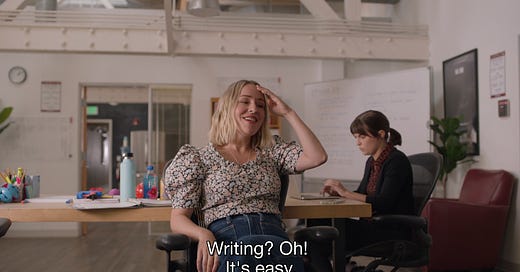


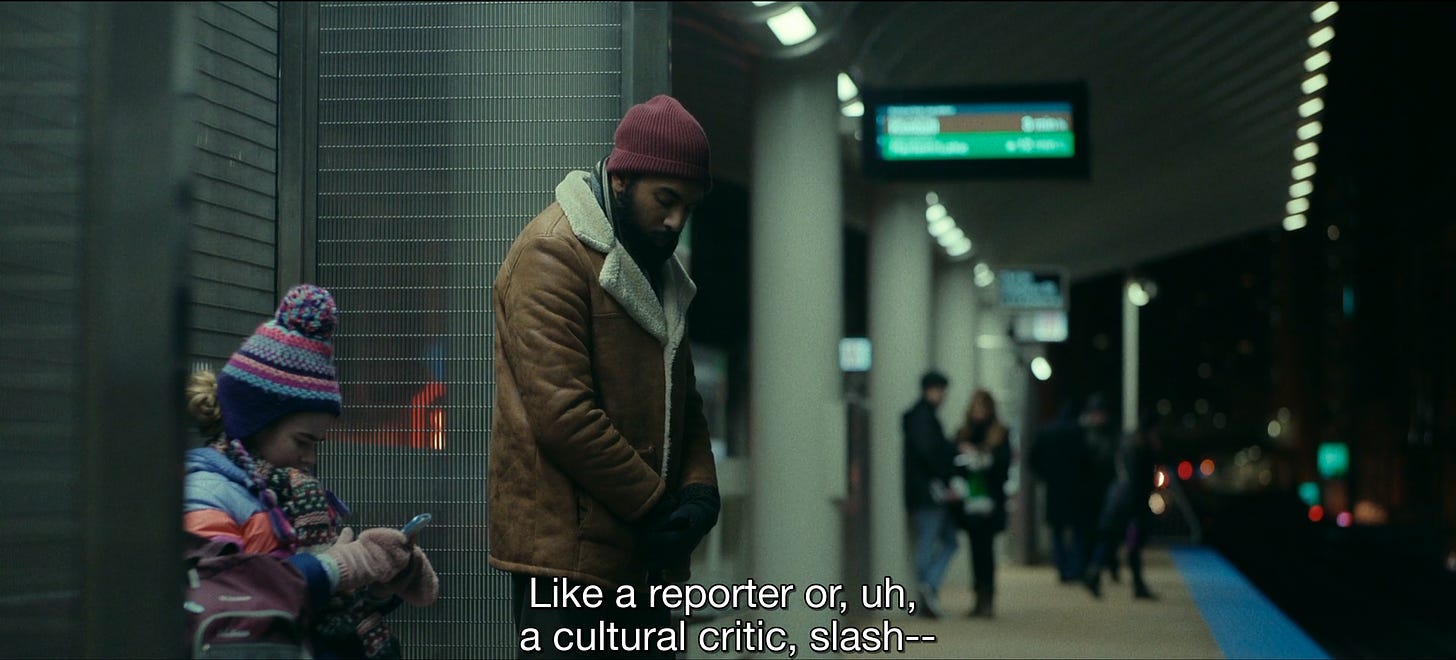
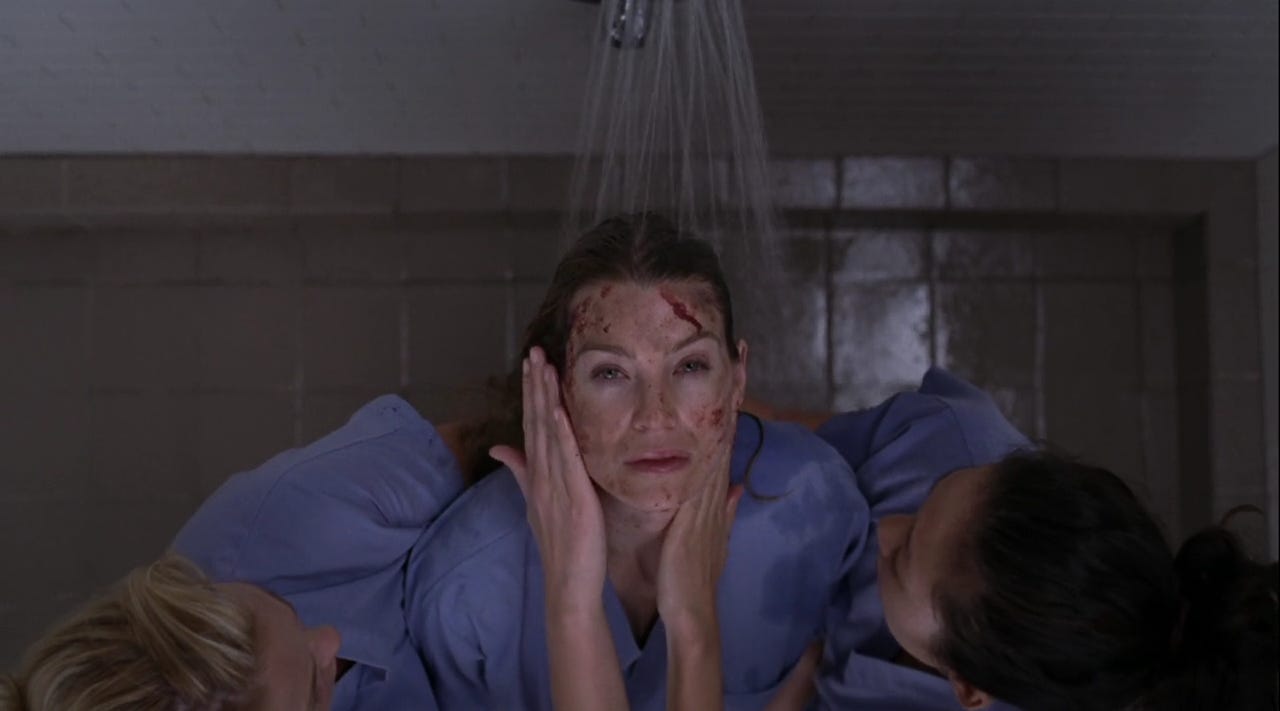
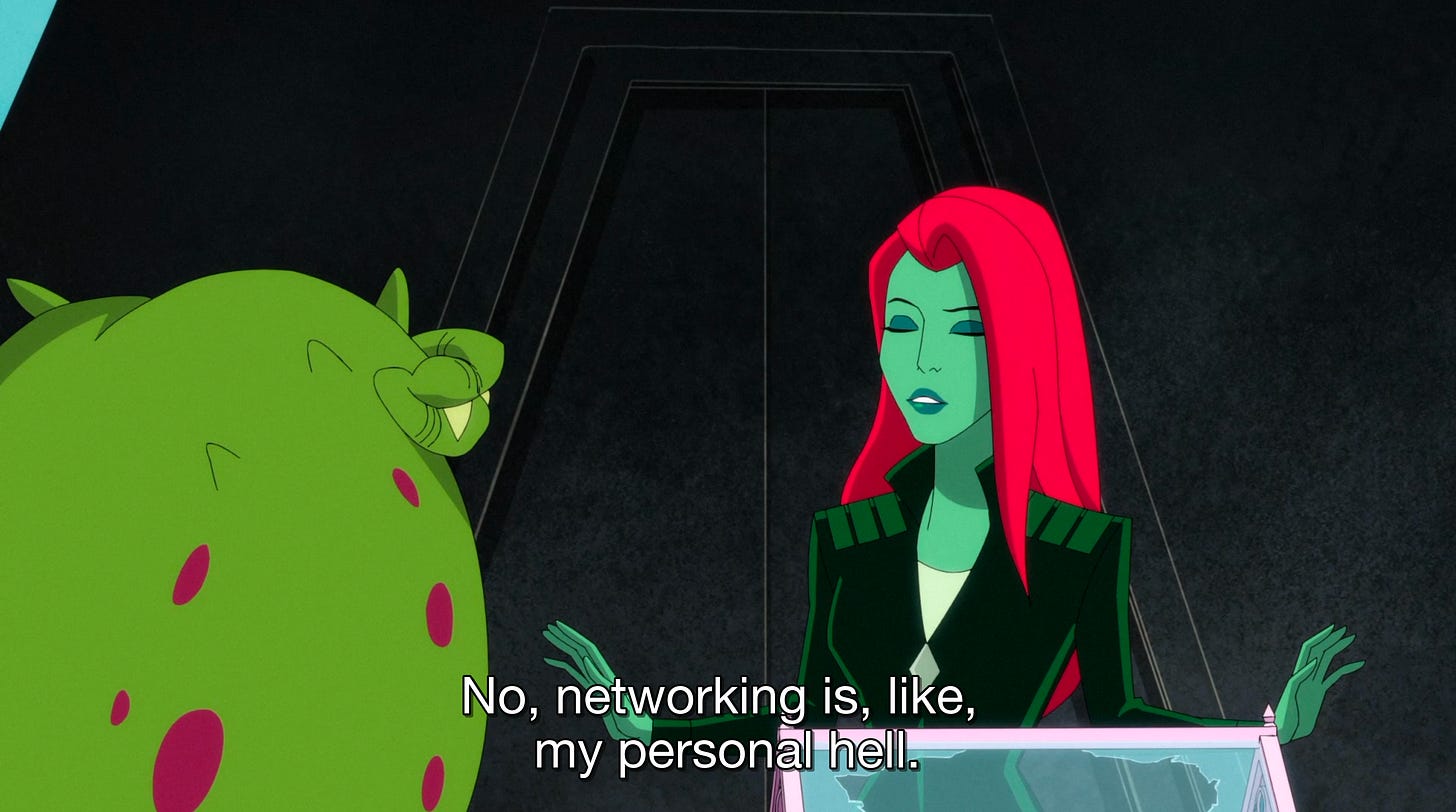
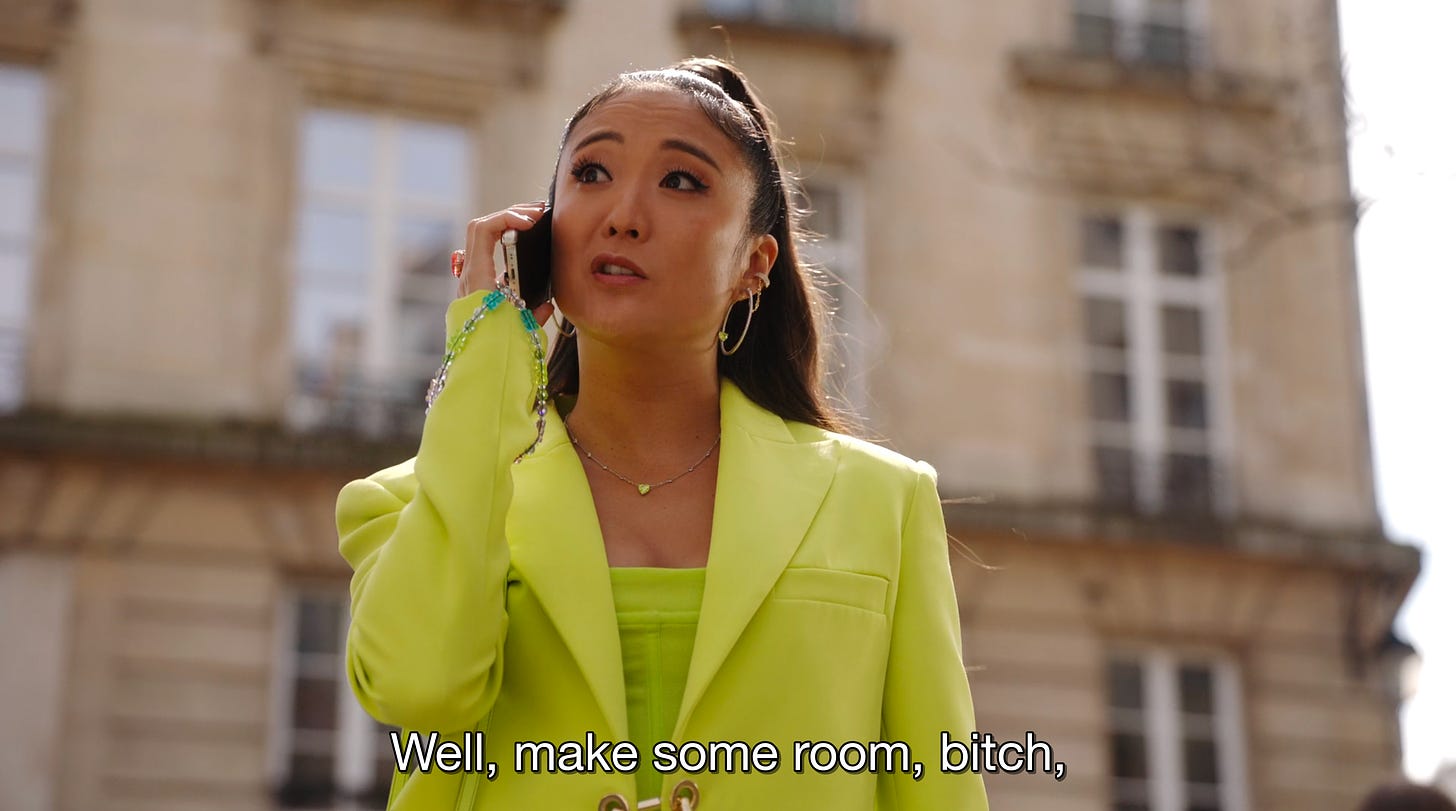
I loved this ! I'm not even in the field but it was so fascinating to read !